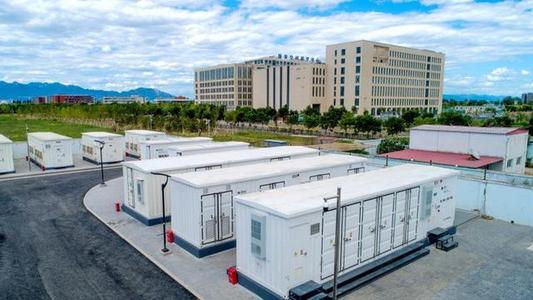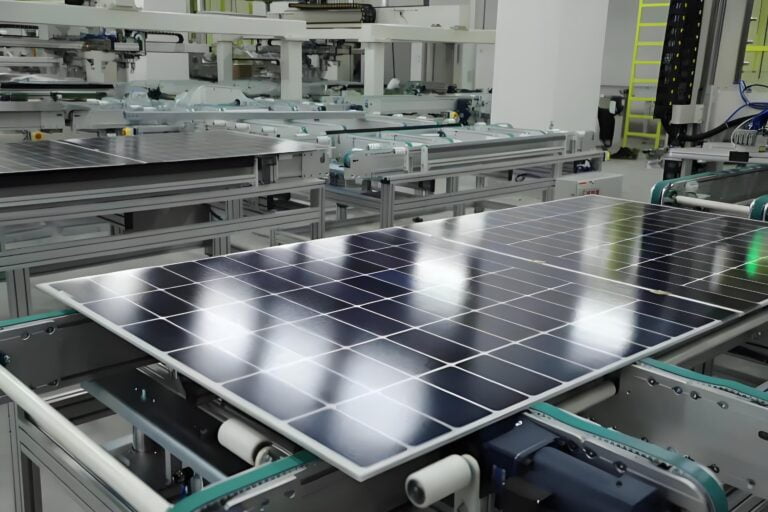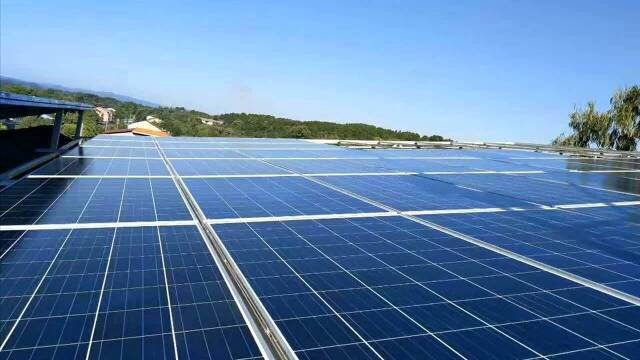
Canadian Solar’s New Energy Industry Park to Be Built with a Planned Investment of Approximately 1.5 Billion CAD; Aiko Solar’s Phase I Project in Jinan Commences with an Investment of Approximately 1.57 Billion CAD.
In the evening of February 26th, Canadian Solar Group (referred to as Canadian Solar, 688472.SH) announced its plans to invest in the Canadian Solar New Energy Co., Ltd. in Huai’an, with an annual production capacity of 14 GW of slices, 14 GW of cells, and 14 GW of modules.
The project will be constructed in three phases, with civil equipment expected to arrive in March this year, and a total planned investment of approximately 1.5 billion CAD.
Canadian Solar stated that this decision is a strategic move to balance the pace of landing capacity in various regions and optimize the capacity layout. As the project site is close to its existing bases in Suqian, Yancheng, and Yangzhou, it can take advantage of the cluster effect of capacity to achieve resource sharing in talents and technology, thereby enhancing the overall operational efficiency of the enterprise.
The company also revealed that the project’s products will use N-type technology and will receive strong support from relevant government investment attraction policies.
In addition to the expansion news, Canadian Solar also announced its plans to repurchase company shares worth no less than 500 million CAD and no more than 1 billion CAD.
According to industry information from InfoLink Consulting for the global component shipment ranking in 2023, Canadian Solar still holds the fifth position, tied with the newcomer Tongwei Solar (600438.SH).
In Canadian Solar’s latest investor relations record, the company expects that by the end of 2024, its production capacity for ingots, wafers, cells, and modules will reach 50.4 GW, 55 GW, 60 GW, and 61 GW, respectively, with annual component shipments ranging between 42-47 GW.
Currently, the solar industry is in a “low point.” With overcapacity appearing in various aspects of the industry chain, there is little profit left in the industry. Large-scale investment plans have been rare in the industry recently.
Canadian Solar also mentioned in the announcement that as the photovoltaic capacity gradually expands, module prices are gradually decreasing, which in turn affects the prices of cells, slices, and downstream products, impacting project profitability. It is necessary to always maintain technological advancement, develop new products, and increase market share to reduce economic risks.
In addition to Canadian Solar, another leading battery component giant, Aiko Solar (600732.SH), also announced the commencement of a billion-dollar project on the same day.
Aiko Solar plans to construct a Phase I project with an annual production capacity of 10 GW of high-efficiency monocrystalline silicon solar cells and modules in Jinan, with an estimated total investment of approximately 1.57 billion CAD, of which fixed asset investment is 1.12 billion CAD, and working capital is 0.45 billion CAD.
This investment plan was first disclosed in April last year. At that time, Aiko Solar announced a bold plan to invest approximately 3.6 billion CAD to construct a 30 GW monocrystalline silicon solar cell project and a supporting 30 GW module project in Jinan, in three phases over five years. Following the commencement of the Phase I project, the start dates for the second and third phases are still uncertain.
Aiko Solar plans for the Phase I project to produce batteries and components based on ABC technology, and to sell them externally as terminal products or in the form of comprehensive photovoltaic solutions.
The company also mentioned that although the overall demand in the photovoltaic industry is strong, with large-scale expansions of enterprises within the industry and a surge of cross-border capital and companies, market competition in the photovoltaic industry has become increasingly fierce. Photovoltaic product prices have fluctuated significantly, and major technological changes or continued significant price fluctuations in the future market competition may result in project returns falling below expectations.
ABC components belong to BC-class technology, using full-back contact cells. Aiko Solar stated that these products have many innovative designs and superior performance, but the brand’s awareness and product reliability are still in the early stages of cultivation. If the products produced by this project in the future do not meet expectations in terms of quality, reliability, service, etc., it may result in lower-than-expected product sales for the project.
In addition to uncertainties in the industry and products in the future, Aiko Solar also faces certain funding challenges. As of the end of September 2023, Aiko Solar’s cash and cash equivalents were 4.88 billion CAD, which still leaves a certain gap between it and the total investment amount for this project.
Aiko Solar plans to raise funds through various means in the future, including daily operations, government subsidies, and financing from financial institutions.
Against the backdrop of declining prices for photovoltaic products, Aiko Solar performed poorly last year, with a loss of approximately 1.12-1.16 billion CAD in the fourth quarter. As of the end of September 2023, Aiko Solar’s asset-liability ratio was 69.8%.
As of the close of trading on February 27th, Canadian Solar’s stock price was 14.18 CAD, up 1.79%, with a market value of 5.23 billion CAD; Aiko Solar’s stock price was 14.96 CAD, down 0.07%, with a market value of 2.74 billion CAD.



